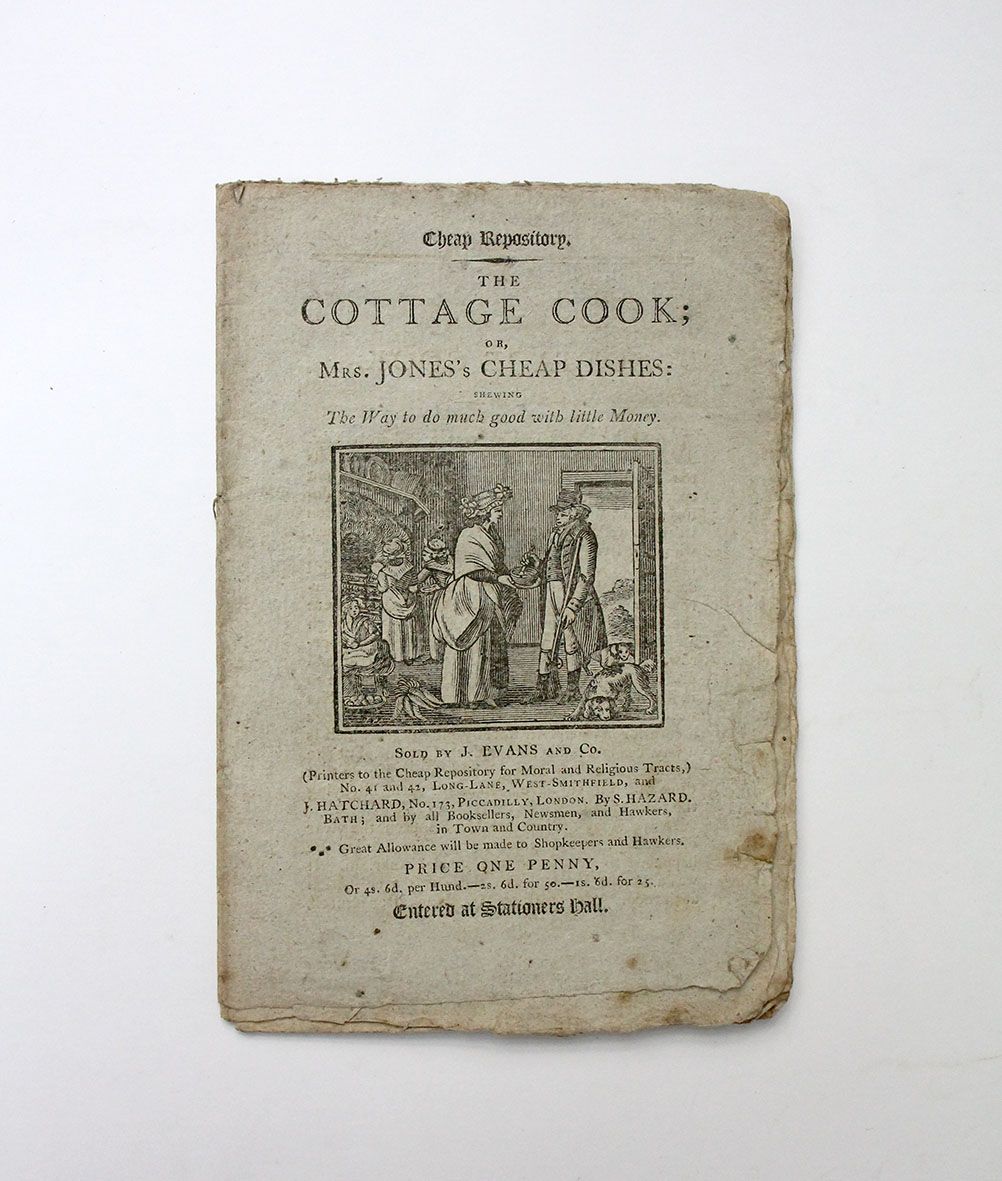THE COTTAGE COOK; OR, MRS. JONES'S CHEAP DISHES: Shewing the Way to do much good with little Money.
Early edition. Unbound as issued. 16 pp. Printed paper covers with a woodcut depicting a domestic scene of food preparation to the front cover. A wonderful, near-fine copy, the covers with minor spotting and creasing only. The contents clean and bright throughout and free from any previous owners' inscriptions or stamps. A superb example of a very scarce title.
An early work concerning cookery and domestic economy for the working class by a leading member of the Blue Stockings Society. Hannah More (1745-1833), an evangelical moralist, philanthropist, and abolitionist in the circle of William Wilberforce, was prolific in her literary output, a great deal of which focussed upon aiding or 'improving' the lower classes. In the present work, she presents the means by which working-class women could run efficient households and provide nutritious food for their families. This takes the form of the story of Mrs. Jones, a merchant's wife who, although 'liberal to the poor', found herself unable to do much good, due to her own failures in successfully managing her household budget. After having 'studied economy' herself, her primary duty became not simply to give further charity to the poor, but to similarly 'reform' them: 'Instruct your poor neighbours in it. They want it almost as much as they want money'. Notably, the work encourages both home baking and home brewing, and includes three recipes at the rear for simple meat/potato/vegetable dishes, one involving pickled herrings, and another for soup of ox cheek, potatoes, onions and 'any garden-stuff [that] may be thrown in', as well as a list of 'friendly hints' on moneysaving methods. This was one of several Cheap Repository Tracts that More penned during the 1790s on various social, domestic, moral and political subjects for distribution to the poor, designed to be accessible both in terms of price and style. Although concerned with the improvement of social conditions and the increased role of women in public and cultural life, her beliefs were underpinned by an essential conservatism that placed her in active contention with contemporaries such as Thomas Paine and Mary Wollstonecraft, whom she both denounced. The work of the latter was, in particular, rejected by More on the basis of her belief that women were inherently unsuited to participation in politics and government. In the present volume, and more broadly throughout her works, More's emphasis upon charity and the supposed need for thrift and behavioural change amongst the working classes, as opposed to the altering of iniquitous social structures, holds up a notable mirror to contemporary debates surrounding the rise of food poverty. An early edition of this work, first issued in 1797, and rare in all its forms. [ESTC T185233].
Stock code: 17152
£2,250
Published:
London: J. Evans.
1799
Category
Non-fictionEconomics
Cookery / Food


